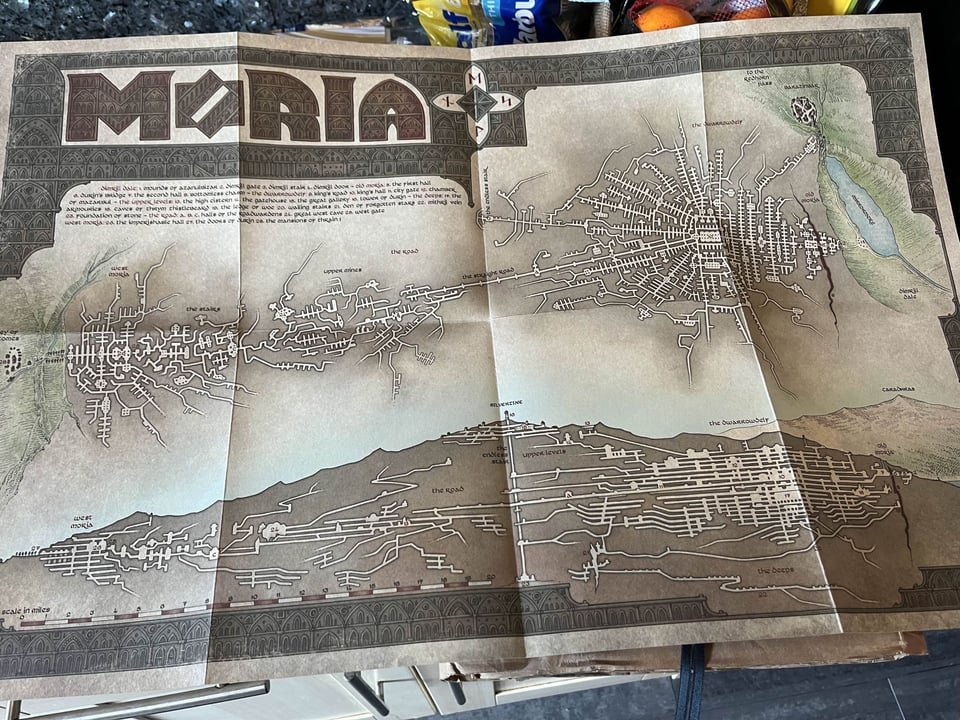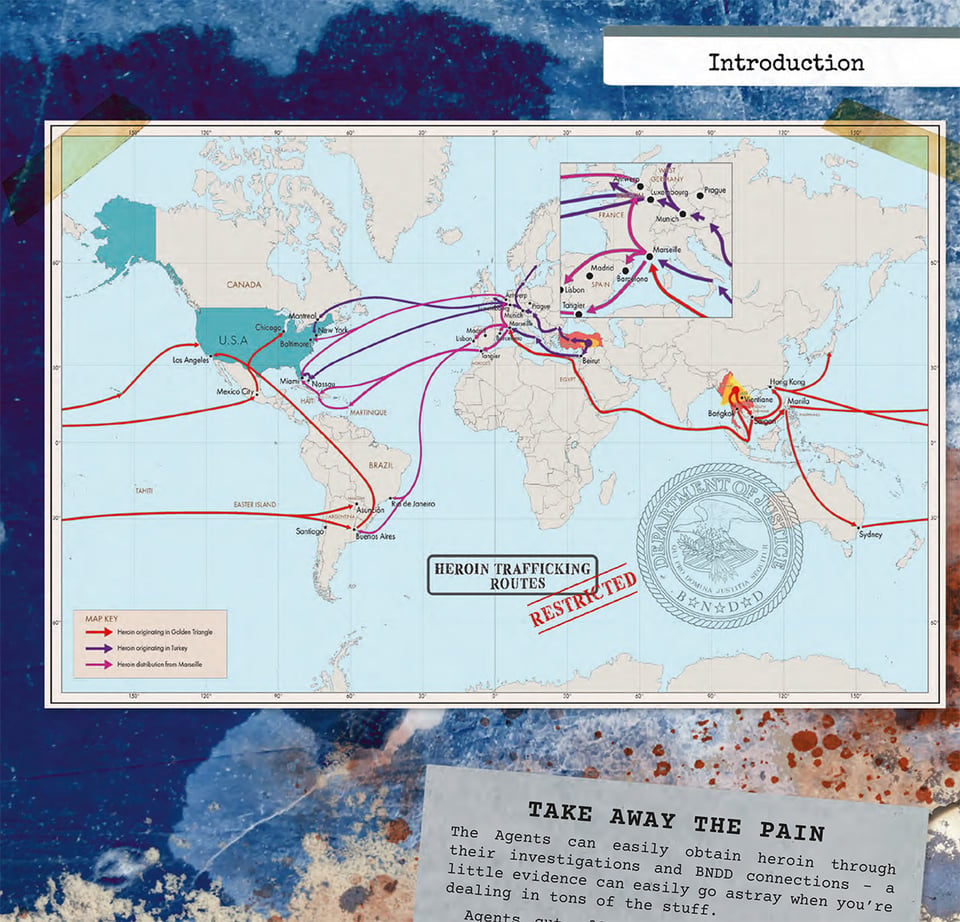GenCon, Worldcon, Conclusions, Continuations
The Sword Triumphant, the concluding volume in the Lands of the Firstborn trilogy, is done. It’s passed through the tempering fires of the development edit without any problems, and has been very positively received. It’ll be out in May next year, assuming the world’s still spinning.
So, what’s next in terms of novels? I’m in the middle of various discussions with my agent and editors about sales (I’ve broken 100,000 novels sold all told!), about the market in general (shorter books!) and what my next move will be (standalone? Trilogy? Epic fantasy? Something else?)
Furthermore, The Gutter Prayer has earned out (as, technically, has The Shadow Saint, as they were sold as a two-book deal, but Gutter Prayer did the work.) That said - Orbit have confirmed that they won’t be continuing with the Black Iron Legacy. It’s disappointing but not unexpected. The writing has pretty much been on the wall for a few years when they didn’t immediately ask for a Broken God follow-up, and it’s an understandable decision when you look at the numbers. The Gutter Prayer sold very well, the two sequels fell short of what was needed to make a continuation viable, especially as series tend to decline over time.
Ironically, I got this news just as Moria’s reaching backers. That was another project close to my heart that got cancelled and then reborn, so I remain sanguine about the Black Iron Legacy. I wrote Gutter Prayer without any real expectation of it getting published, so I can’t be upset about it not getting a third sequel from Orbit. So, I’m off to investigate options while I work on pitches for another Orbit series. I’m told by Those Who Know that it’s very viable to crowdfund a sequel to a series with a built-in readership, which is promising - especially as I could do something in the tabletop gaming space at the same time.
Black Iron 4 - the Hidden Pantheon is at 72500 words right now, although it needs a lot of rewriting. All the other novels were written in a linear fashion, either from an outline or just following a story as it branched. This one’s trying to juggle three simultaneous stories that interlink but don’t intersect very much, so it’s getting written in disassociated scenes that’ll get slotted into the timeline later. It’s not how I like to write, but it’s what the book demands.
There’s a brief extract from the draft at the end of this email.

Speaking of Moria, it’s dominating a lot of my GenCon. I’ve never had so many interviews scheduled! I’ll be at the Pelgrane booth (#529) for most of the con. Other events:
THURSDAY 2PM: Free League Showcase, ICC245
FRIDAY EVENING: Ennie Awards, Union Station
SATURDAY 4PM: Swords Spies & Shoggoths, Tennessee Room in the JW Mariott
Sunday I’m flying back early to get ready for Worldcon in Glasgow.
I’m not allowed to publish my panel schedule for that con yet, but right now I’m doing two events on the Friday at least.

Also appearing at GenCon (Yog-Sothoth and international shipping willing) - the long-delayed, even-longer-awaited BORELLUS CONNECTION campaign for Fall of Delta Green, another Ken/Gar joint production (he did the outline, the bulk of the research, and one of the adventures; I wrote the rest of the adventures, which meant sifting through Ken’s firehose of ideas to get things under wordcount. As the book’s 400+ pages, clearly sifting a firehose works REALLY well. Still, it’s DONE and HUGE and BEAUTIFUL, and involves punching Mythos monsters from Laos to Baltimore by way of Turkey, Marseille and Easter Island.

Just announced - the Heartwood anthology of stories inspired by Robert Holdstock’s Mythago Wood series. I adore Mythago Wood (and love the first sequel, Lavondyss, even more), so I was overjoyed to get to contribute to this collection. It’s out soon - preorder here (or the shiny special edition) and check out the list of contributors!
I’ll be at the Dublin Writer’s Festival in September, and did a pre-festival podcast interview, available here: https://shows.acast.com/661668ce9eb2d70016c42362/episodes/exclusive-festival-talk-with-gareth-hanrahan
I’ve never done a non-SF writing con before, so that’ll be a new experience.
Currently Reading: Er, the Broken God, for revision. Samuel Delaney’s Silent Interviews, Thirty Two Words for Field (which is much more interesting than I thought it would be)
Also - Berserk, as people keep comparing the Gutter Prayer to it.
I can’t recall offhand who got me listening to Michael Palin’s diaries, but I’m finding them a very restful alternative to the news. Or, maybe, a commentary on the news, thirty years removed (currently listening to his late 80s/90s volume). It’s good to be reminded that history’s always uncertain in the moment, and so’s the creative life.
If you’re at GenCon or WorldCon, please say hi!
I leave you with a chunk of chapter 2 of The Hidden Pantheon.
Gar
At low tide, Eladora Duttin walks the shore of her city.
Her boots sink into the mud exposed by the ebbing waters, so it’s a hard slog. She uses her walking stick to maintain balance in the muck. It would not be appropriate for Guerdon’s Special Thaumaturge to slip and become soiled.
Rats scurry away, glaring from sewer outlets at this intruder in their domain. She imagines getting stuck here, twisting her ankle on some unseen snare. How long would it be before the waters rose and drowned her? How hungry are those rats?
Don’t be an idiot. High tide is hours away. You could call for help, even if you couldn’t walk. Don’t be a fool, Eladora, she berates herself.
Behind her rises the stained sea-wall of the New City. An urban miracle, conjured from the corpse of martyred criminal Spar Idgeson nearly three years ago. Nearby, the low tide exposes the bones of a titanic dragon, out in the harbour.
Ahead, the old docks. Disturbingly quiet, when in past years there would be a host of ships there, the masts a leafless forest, steam-funnels like towers. Beyond the docklands, to her right, warehouses and taverns, and then the streets of the Wash. Occupied territory, these days. Through a smog of incense, she can make out the temple spires and ziggurats of the Ishmeric Occupation Zone.
The empty piers remind her of the dragon’s bones. Dead, stripped of flesh, marrow sucked dry.
A few listless dockers watch her. They probably think she’s a mudlark, scavenging what the sea washed up and the sewers washed out. She imagines what would happen if they came for her - I stoop, and they think I’ve found something valuable. They ambush me as I come up those steps there. No witnesses there. I’d have to paralyse the first with a spell, then threaten the others with my pistol. Still, she grips her walking stick tightly, and suppresses the mental image of the dockers cutting her throat and dumping her body in the mud.
Eladora’s too busy to die.
Long ago - well, not long ago, only five years ago, but before the Godswar came to Guerdon, so a different era entirely - she walked along this shore. Professor Ongent squelching merrily through the mud. Look here, Eladora! Behold the strata, like a hidden book to those with the wit to read them. The very mud regales us with the history of the city. Look what it preserves - those wooden posts? Fishermen’s huts stood here, before they dredged the harbour a century ago! And look, oh look! An early Ashen sewer opening! What a treasure, my dear! It’s badly corroded - alchemical runoff, an archaeologist’s bane - but still, you can make out the mark of Patros Sylvestros II - or III, maybe? What do you think? Is that a II or a III? Ongent, grinning like a child who’d found a coin outside a sweetshop.
And trailing after them, always aloof, always disinterested, Ongent’s son, Miren. Sullen albatross. Scowling as he picked his way from stepping stone to stepping stone. Miren hated dirt.
Hates, she thinks, not hated. Ongent is dead, but his monstrous son is still alive. Miren - bloody-handed, monstrous, murderous, god-touched Miren - is still alive.
You know, Ongent says in her memory, it was one of those fishermen who found an idol of the Black Iron Gods tangled in his nets when he drew them up from the deeps. A chance that changed everything! We think of historical forces as these great, impersonal, implacable things, grinding like glaciers through time, as pitiless as gods - and then, oh! A little twist, and everything is different.
He made it sound like a casual aside. Just another historical tidbit, an ornamental footnote. A shiny pebble in the mud, to be picked up, admired, then cast away. Eladora never suspected Professor Ongent was a worshipper of those Black Iron Gods, any more than she knew that her own family legacy was intimately intertwined with them. She was a fool.
No more. No more. She won’t be fooled again.
Ongent is dead. Miren is alive - but at her sufferance. Miren lives because Eladora needs him alive - for now.
And, as if summoned by such thoughts, she sees Alic making his way across the mud towards her. He gives her a cheery wave, then stumbles in the mud. A perfectly natural little accident, the sort of thing that could happen to anybody - but Eladora knows with horrible certainly that Alic chose to nearly slip, in the same way an actor might deliberately stumble over a word in a line of dialogue. Alic’s little slip conveys fallibility. It suggests humanity.
She waits for him to cross the mud. His face is forgettable, neither handsome nor ugly. When Eladora first met him, he pretended to be a father, care-worn and kind. Now, he’s pretending to be a politician, so he’s better dressed, walks taller, shows more teeth when he smiles.
It’s all an act. He’s presenting to be human. Alic is a mask worn by the broken remnant of a god. Once, he was Fate Spider, a god of thieves and spies. Now, after a schism, he’s pretending to be human, hiding from his former pantheon. Still divine. Still dangerous.
He came to Guerdon in disguise as a spy. Now he’s a member of parliament, the Minister for Security, in charge of the city watch and the city’s defences. Technically, in fact, he’s her boss - the Special Thaumaturgist reports to the Minister.
But he’s her tool. She unmasked him, she bound him. He works for her - for now.
For long enough.
“Hell of a place for a stroll,” calls Alic as he gets close.
“How did you know I was down here?”
He grins. “You’re never without protection, Ms. Duttin.” The dock-workers, she guesses. She should be reassured that Alic has operatives watching her, but their gaze offers no comfort.
“What is it?”
“The mercenaries are back. They found your archaeologist.”
Eladora sniffs. “To clarify, he’s a former archaeologist. He turned his back on academia.” The worst possible heresy. She starts the long march along the shore to the stairs. “We’ll keep him in the lithosarium.”
“You should tell me what you’re up to,” says Alic. He says it lightly, an offhand offer. Like Ongent mentioned the Black Iron Gods. “I’ll be better able to help if I know everything.”
She fights the temptation to confide in Alic - it would be so very easy to trust him, to let him handle everything. He’d get it all done, quietly and competently. Events go Alic’s way, and people come to rely on him. She’s seen him weave his webs in Parliament, the indispensable lynchpin of the government, the man who holds everything together, who gets things done. No ambition of his own, of course - he’s just happy to help support Kelkin’s regime.
“I thought you already did.”
He smiles. His new smile, the one with teeth. “Not anymore.”
“You have your work, Minister, and I have mine,” says Eladora. “Kelkin needs you. Guerdon needs you, now more than ever.” That, at least, is true - the city’s wounded, perhaps mortally. The last time Eladora walked along this shore with Professor Ongent, Guerdon was secure, its prosperity assured by supplying alchemical weapons to those fighting in the distant Godswar. Now, the war is all around them, restrained only by a fraying and localised cease-fire. Now the alchemists are leaving, and taking the city’s prosperity with them.
“Kelkin,” mutters Alic, “may not last the year.”
“In office?” Effro Kelkin’s control of parliament was precarious even before the most recent catastrophe.
“That too.”
His health, then.
“There are options,” says Alic quietly, “that we might take to better protect the city. Steps that require more vigour and resolve than Kelkin can muster - or that require compromise, and Effro’s never been able to compromise on certain matters. Give me the opportunity to -”
“We’ll discuss options later,” says Eladora, not daring to look Alic in the face. Keep the bastard on a tight leash, Sinter once told her. Don’t let him assert himself.
“There may not be time later. Even I need to make preparations. Kelkin trusts you. You say he and Guerdon need me - tell him that. Have him name me his successor.”
Eladora stoops down and picks up a piece of trash from the foreshore. It’s a twisted wire mesh, from a broken lobster pot. The harbour’s been mostly dead for decades, poisoned by alchemical runoff, but someone still has faith in Guerdon.
“Come back to the lithosarium with me,” she says. “We have young Emlin out for forty minutes a day, now.”